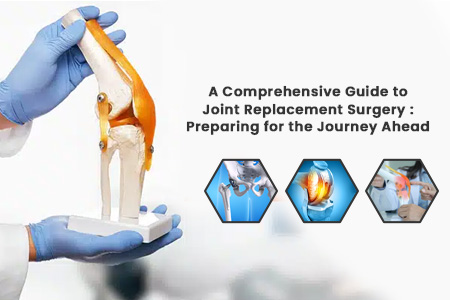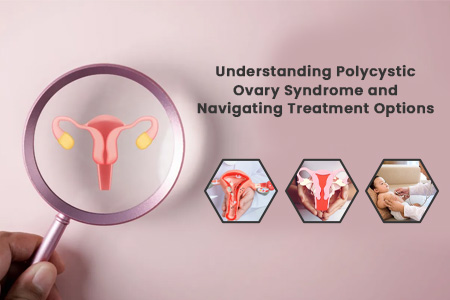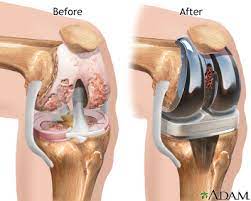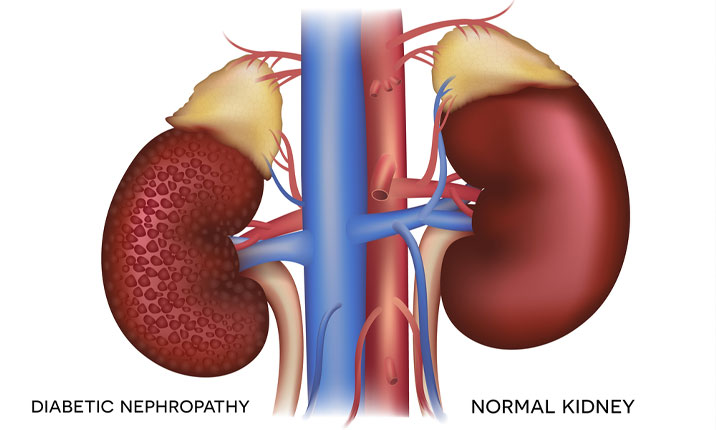
 2024-03-07
2024-03-07
Premature birth can be a challenging journey for both babies and their families. However, advances in medical technology and the dedicated care provided by Neonatal Intensive Care Units (NICUs), many premature babies are given the opportunity to thrive. In this article, we'll explore the vital role NICUs play in saving the lives of premature infants and supporting their development, highlighting the incredible work of healthcare professionals in these specialized units.
Understanding Premature Birth:
Premature birth, defined as birth before 37 weeks of pregnancy, can pose significant health risks for newborns. Premature babies, or preemies, may face complications related to their immature organs and systems, such as respiratory distress syndrome, feeding difficulties, and neurological issues. The level of care required to address these challenges is often beyond what a standard newborn nursery can provide.
The Role of NICUs:
NICUs are specially equipped hospital units staffed by a multidisciplinary team of healthcare professionals trained to care for critically ill or premature infants. These units are equipped with advanced medical technology and monitoring equipment to provide round-the-clock care for infants with complex medical needs. Best Hospital In Hyderabad NICU teams typically include neonatologists, nurses, respiratory therapists, nutritionists, and developmental specialists, all working together to provide comprehensive care tailored to each baby's unique needs.
Specialized Care for Premature Infants:
In the NICU, premature babies receive specialized medical interventions to support their growth and development. This may include respiratory support through mechanical ventilation or nasal continuous positive airway pressure (CPAP), nutritional support through intravenous fluids or feeding tubes, and temperature control to maintain a stable body temperature. Additionally, premature infants may undergo specialized imaging studies and diagnostic tests to monitor their progress and identify any potential complications early on.
Family-Centered Care:
NICUs recognize the importance of family involvement in the care of premature infants and strive to provide family-centered care. Parents are encouraged to participate in their baby's care by providing skin-to-skin contact (kangaroo care), feeding, and bonding activities. NICU staff offer education and support to parents, empowering them to be active participants in their baby's journey and helping them navigate the emotional challenges associated with having a premature infant.
Long-Term Outcomes:
The care provided in NICUs can have a profound impact on the long-term outcomes of premature babies. With early intervention and specialized care, many preemies go on to thrive and reach developmental milestones on par with their full-term peers. However, some premature infants may face ongoing health challenges or developmental delays, requiring ongoing support and intervention beyond the NICU stay.
Celebrating Success Stories:
Despite the challenges, NICUs are filled with success stories of premature babies who overcome adversity and grow into healthy, thriving children. These success stories are a testament to the dedication and expertise of the healthcare professionals who tirelessly care for premature infants and their families, offering hope and support during a challenging time.
The Importance of Research and Innovation:
Advancements in neonatal medicine are continually improving outcomes for premature babies. Research studies conducted within NICUs help to identify new treatment modalities, refine existing protocols, and enhance our understanding of neonatal health and development. Furthermore, ongoing innovation in medical technology, such as neonatal ventilators, monitoring devices, and nutrition solutions, continues to push the boundaries of what is possible in neonatal care.
Ensuring Access to NICU Care:
While NICUs offer life-saving care for premature infants, access to these specialized units may be limited in certain regions or communities. Efforts to improve access to NICU care, such as expanding NICU capacity, enhancing transportation services for high-risk pregnancies, and providing education and resources to healthcare providers in underserved areas, are essential to ensure that all premature babies have access to the care they need to thrive.
Supporting NICU Families:
In addition to providing medical care for premature babies, NICUs also offer support services for families. These may include counseling services, support groups, and resources to help families navigate the emotional and financial challenges associated with having a premature infant. By addressing the holistic needs of NICU families, these support services play a crucial role in promoting positive outcomes for both babies and their caregivers.
The Impact of COVID-19 on NICU Care:
The COVID-19 pandemic has posed unique challenges for NICU care, including concerns about infection control, visitation policies, and access to specialized medical equipment. NICU teams have adapted their practices to ensure the safety of both patients and staff while continuing to provide high-quality care to premature infants and their families. The pandemic has highlighted the resilience and adaptability of NICU professionals in the face of unprecedented challenges.
Neonatal Intensive Care Units play a critical role in saving the lives of premature babies and supporting their development in the early days of life. Through specialized medical interventions at Prasidh Hospitals and family-centered care you will receive optimum results. NICUs at the Best Hospital in Hyderabad provide premature infants with the best possible start in life.
 What’s Causing That Itchy Feeling in Your Ears? 2024-09-21 by : Prasidh Hospitals
What’s Causing That Itchy Feeling in Your Ears? 2024-09-21 by : Prasidh Hospitals
 Kidney Health Comprehensive Kidney Stone Care 2024-09-20 by : Prasidh Hospitals
Kidney Health Comprehensive Kidney Stone Care 2024-09-20 by : Prasidh Hospitals
 How Has Varicose Veins Treatment Changed Over the Years? 2024-09-18 by : Prasidh Hospital
How Has Varicose Veins Treatment Changed Over the Years? 2024-09-18 by : Prasidh Hospital
 Tackling Kidney Stones Your Comprehensive Treatment Guide for Relief 2024-08-21 by : Prasidh Hospital
Tackling Kidney Stones Your Comprehensive Treatment Guide for Relief 2024-08-21 by : Prasidh Hospital
 Heartburn Symptoms, Causes, Risks, and Treatment 2024-08-20 by : Prasidh Hospital
Heartburn Symptoms, Causes, Risks, and Treatment 2024-08-20 by : Prasidh Hospital
 Mosquito-Related Diseases Symptoms, Causes, and Preventive Tips 2024-08-16 by : Prasidh Hospital
Mosquito-Related Diseases Symptoms, Causes, and Preventive Tips 2024-08-16 by : Prasidh Hospital
 Understanding ADHD in Children Signs, Symptoms, and Treatment 2024-07-11 by : Prasidh Hospitals -
Understanding ADHD in Children Signs, Symptoms, and Treatment 2024-07-11 by : Prasidh Hospitals -
 Pregnancy Planning Preparing for a Healthy Pregnancy 2024-07-11 by : Prasidh Hospitals -
Pregnancy Planning Preparing for a Healthy Pregnancy 2024-07-11 by : Prasidh Hospitals -
 Understanding High Blood Pressure Causes, Risks, and Management 2024-07-11 by : Prasidh Hospitals -
Understanding High Blood Pressure Causes, Risks, and Management 2024-07-11 by : Prasidh Hospitals -
 Understanding Hormonal Imbalances Causes, Symptoms, and Treatments for a Balanced Life 2024-05-27 by : Prasidh Hospital
Understanding Hormonal Imbalances Causes, Symptoms, and Treatments for a Balanced Life 2024-05-27 by : Prasidh Hospital
 Navigating Orthopaedic Surgery Procedures, Recovery, and Benefits 2024-05-25 by : Prasidh Hospital
Navigating Orthopaedic Surgery Procedures, Recovery, and Benefits 2024-05-25 by : Prasidh Hospital
 Boosting Your Child's Immune System Paediatric Advice for a Healthy Future 2024-05-24 by : Prasidh Hospital
Boosting Your Child's Immune System Paediatric Advice for a Healthy Future 2024-05-24 by : Prasidh Hospital
 Joint Replacement Surgery: What to Expect and How to Prepare 2024-04-12 by : Prasidh Hospital
Joint Replacement Surgery: What to Expect and How to Prepare 2024-04-12 by : Prasidh Hospital
 The Vital Importance of Regular Gynecologist Check-ups for Women's Health 2024-03-06 by : Prasidh Hospital
The Vital Importance of Regular Gynecologist Check-ups for Women's Health 2024-03-06 by : Prasidh Hospital
 The Lifesaving Role of Neonatal Intensive Care Units (NICUs) for Premature Babies 2024-03-07 by : Prasidh Hospital
The Lifesaving Role of Neonatal Intensive Care Units (NICUs) for Premature Babies 2024-03-07 by : Prasidh Hospital
 A Comprehensive Guide to Joint Replacement Surgery Preparing for the Journey Ahead 2024-03-04 by : Prasidh Hospital
A Comprehensive Guide to Joint Replacement Surgery Preparing for the Journey Ahead 2024-03-04 by : Prasidh Hospital
 Breaking Down Osteoporosis Maintaining Bone Health 2024-02-16 by : Prasidh Hospital
Breaking Down Osteoporosis Maintaining Bone Health 2024-02-16 by : Prasidh Hospital
 Understanding Polycystic Ovary Syndrome and Navigating Treatment Options 2024-02-16 by : Prasidh Hospital
Understanding Polycystic Ovary Syndrome and Navigating Treatment Options 2024-02-16 by : Prasidh Hospital
 Protecting Precious Lives Neonatal Pneumonia and Promoting Prasidh Hospital's Expert Care 2024-02-09 by : Prasidh Hospital
Protecting Precious Lives Neonatal Pneumonia and Promoting Prasidh Hospital's Expert Care 2024-02-09 by : Prasidh Hospital
 Rediscovering Sound A Journey through Hearing Loss Solutions at Prasidh Hospital 2024-01-29 by : Prasidh Hospital
Rediscovering Sound A Journey through Hearing Loss Solutions at Prasidh Hospital 2024-01-29 by : Prasidh Hospital
 Unveiling Solutions for PCOS Prasidh Hospitals Holistic Approach to Womens Health 2024-01-25 by : Prasidh Hospital
Unveiling Solutions for PCOS Prasidh Hospitals Holistic Approach to Womens Health 2024-01-25 by : Prasidh Hospital
 Challenges of ADHD Prasidh Hospital's Comprehensive Approach to Care 2024-01-24 by : Prasidh Hospital
Challenges of ADHD Prasidh Hospital's Comprehensive Approach to Care 2024-01-24 by : Prasidh Hospital
 Understanding Acid Peptic Disease Symptoms, Causes, and Treatment 2023-12-29 by : Prasidh Hospital
Understanding Acid Peptic Disease Symptoms, Causes, and Treatment 2023-12-29 by : Prasidh Hospital
 Nurturing Healthy Appetites A Guide to Improving Your Child's Eating Habits 2023-12-27 by : Prasidh Hospital
Nurturing Healthy Appetites A Guide to Improving Your Child's Eating Habits 2023-12-27 by : Prasidh Hospital
 Nourishing Pregnancy Foods to Avoid for a Healthy Journey 2023-12-20 by : Prasidh Hospital
Nourishing Pregnancy Foods to Avoid for a Healthy Journey 2023-12-20 by : Prasidh Hospital
 Identify the Symptoms of Allergy and Asthma A Comprehensive Guide 2023-12-13 by : Prasidh Hospital
Identify the Symptoms of Allergy and Asthma A Comprehensive Guide 2023-12-13 by : Prasidh Hospital
 Hyderabad's Solution to Dry Mouth Problems Expert Care 2023-11-28 by : Prasidh Hospital
Hyderabad's Solution to Dry Mouth Problems Expert Care 2023-11-28 by : Prasidh Hospital
 Strengthening Your Foundation: Osteoporosis Safety and Prevention Tips 2023-11-15 by : Prasidh Hospital
Strengthening Your Foundation: Osteoporosis Safety and Prevention Tips 2023-11-15 by : Prasidh Hospital
 Maximizing Your Chances of a Normal Delivery: Tips for a Healthy Pregnancy 2023-11-07 by : Prasidh Hospital
Maximizing Your Chances of a Normal Delivery: Tips for a Healthy Pregnancy 2023-11-07 by : Prasidh Hospital
 Laparoscopic surgery 2023-07-04 by : prasidhhospitals
Laparoscopic surgery 2023-07-04 by : prasidhhospitals
 How to Manage Pain Swelling 2022-07-23 by : admin
How to Manage Pain Swelling 2022-07-23 by : admin
 kidney health and diasbetes 2022-07-23 by : Admin
kidney health and diasbetes 2022-07-23 by : Admin
 how to increase the chances of normal delivery? 2022-07-23 by : admin
how to increase the chances of normal delivery? 2022-07-23 by : admin
Copyright © Prasidh rights reserved.